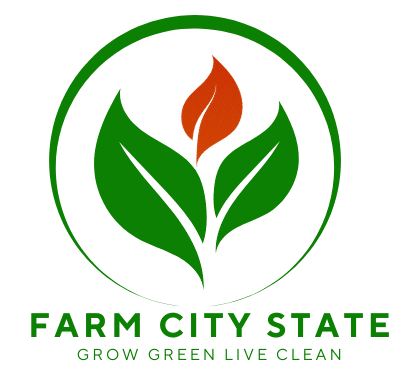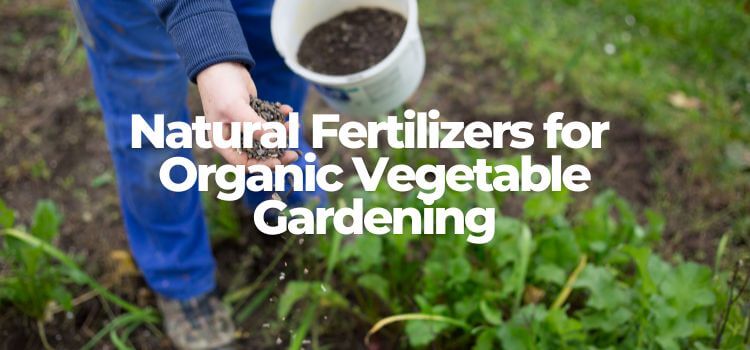As an Amazon Associate, I earn from qualifying purchases.
I began to grow vegetables myself and soon realized the importance of proper fertilizers. Having a passion for growing healthy, organic vegetables, I turned to natural fertilizers for organic vegetable gardening. They are organic in origin and provide the required nutrients without any toxic chemicals. Initially, I did not know which natural fertilizer was most beneficial for my plants, but after some investigation and experimentation, I learned how effective natural products can be.
Over time, my plant development and soil quality improved. The best aspect I like about natural fertilizers is that they encourage long-lasting garden well-being and are more environmentally friendly. In this post, I’ll share what I’ve learned about natural fertilizers, how to choose the right one for your garden, and how they can help your vegetables grow stronger and more vibrant.
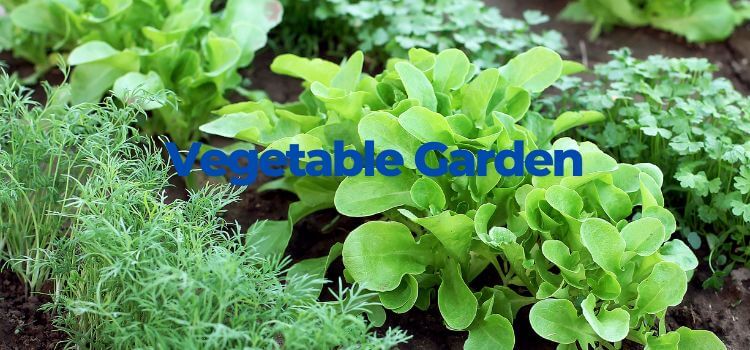
Why Should You Use Natural Fertilizers in Your Vegetable Garden?
Using natural fertilizers in your garden can be a game changer. I remember when I first switched to using organic fertilizers in my vegetable garden—my plants were healthier, and the soil became richer. Natural fertilizers, such as compost, manure, and plant-based options, are packed with essential nutrients that plants need to grow strong. Unlike chemical fertilizers, which can harm the soil over time, natural options work in harmony with the environment.
Here are three key reasons why natural fertilizers are a great choice for your vegetable garden:
- They improve soil structure and health.
- They provide long-term benefits for plants.
- They are better for the environment and safe for beneficial insects.
What Are Natural Fertilizers and How Do They Work?
Natural fertilizers come from organic materials and are designed to provide nutrients to plants without using chemicals. These fertilizers break down slowly, releasing nutrients into the soil gradually. This slow release ensures that plants can absorb the nutrients they need over time, which promotes healthier growth.
There are several types of natural fertilizers, each with unique benefits:
1. Compost
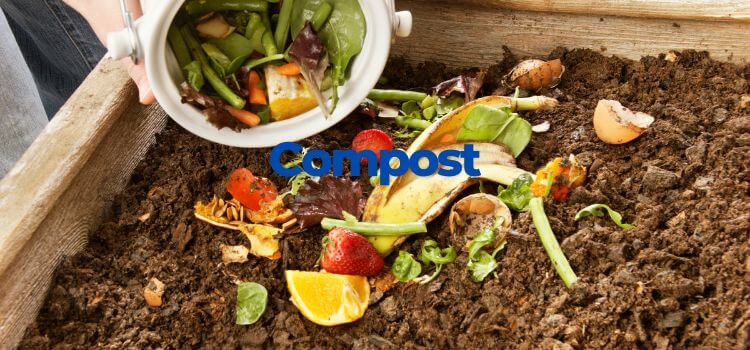
Compost is a rich, dark material created by decomposing organic matter, such as food scraps, leaves, and grass clippings. It is a fantastic natural fertilizer because it improves soil structure, increases water retention, and introduces beneficial microorganisms that help break down organic matter.
| Benefits of Compost | Drawbacks |
|---|---|
| Improves soil structure | Takes time to decompose |
| Adds beneficial microbes | Needs space for composting |
| Increases water retention | Can be messy to handle |
I use compost in my garden, and I’ve seen a big difference in the overall health of my soil. I simply add a layer to the top of my garden beds and mix it in gently.
2. Manure
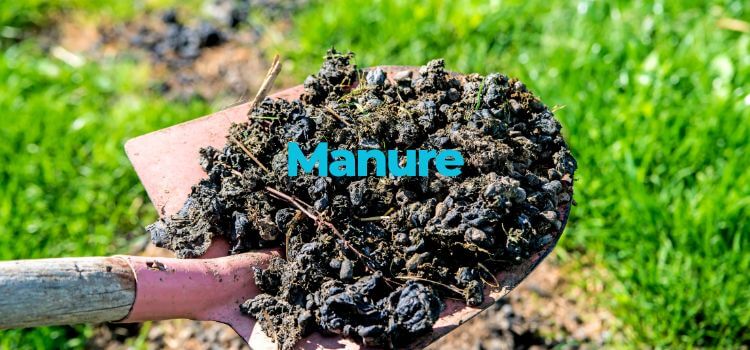
Manure is a well-known organic fertilizer that has been used for centuries. It comes from various animals, such as cows, chickens, or horses, and provides an excellent source of nitrogen, phosphorus, and potassium. Manure can be purchased in bags or composted on the farm. It’s best to use aged or composted manure, as fresh manure can burn plants due to its high nitrogen content.
| Type of Manure | Nutrients Provided | Best For |
|---|---|---|
| Cow Manure | Nitrogen, Phosphorus | Leafy greens, root crops |
| Chicken Manure | Nitrogen, Potassium | Fast-growing vegetables |
| Horse Manure | Nitrogen, Phosphorus | Fruit-bearing plants |
Using manure in your garden can help boost your plants’ growth, but it’s essential to use it carefully. I mix aged manure into the soil before planting, which helps give my vegetables a strong start.
3. Fish Emulsion
Fish emulsion is another great natural fertilizer made from fish parts. It’s a liquid fertilizer that is high in nitrogen and is easy to apply. I’ve used fish emulsion in my garden for a few years, and it gives my plants a noticeable boost, especially during their early growth stages.
| Benefits of Fish Emulsion | Drawbacks |
|---|---|
| Strong odour during application | Strong odor during application |
| Easy to apply | Needs frequent application |
| Rich in nitrogen | Can attract pests if overused |
If you’re looking for a quick fix to give your plants a nutrient boost, fish emulsion is a great option. However, I recommend using it sparingly to avoid over-fertilizing.
How to Use Natural Fertilizers in Your Garden
Using natural fertilizers isn’t complicated, but it’s important to apply them correctly for the best results. Here are a few guidelines I follow when using these fertilizers in my vegetable garden:

1. Test Your Soil
Before applying any fertilizer, it’s a good idea to test your soil to see which nutrients it may be lacking. This step helps you avoid over-fertilizing and ensures you’re giving your plants exactly what they need. You can buy a simple soil test kit or send a sample to a local lab.
2. Apply Fertilizer at the Right Time
Natural fertilizers tend to work more slowly than synthetic ones, so timing is crucial. I usually apply compost and manure in the fall to give them time to break down over the winter. For fish emulsion and other liquid fertilizers, I apply them when the plants are actively growing, typically in early spring or during the growing season.
3. Don’t Over-Fertilize
Natural fertilizers are generally safer than chemical ones, but you can still overdo it. Too much fertilizer can harm plants by causing them to grow too quickly or even burn the roots. Always follow the recommended application rates on the fertilizer packaging.
Note: Applying too much fertilizer can harm your plants, so always follow the instructions.
4. Use Mulch to Retain Nutrients
After applying fertilizer, I like to cover the soil with a layer of mulch. Mulch helps retain moisture, suppress weeds, and keep the nutrients in the soil. This gives my plants a better chance to absorb the nutrients they need.
Benefits of Natural Fertilizers in Organic Gardening
Using natural fertilizers in organic vegetable gardening offers numerous advantages. Not only do they help plants grow stronger and healthier, but they also benefit the environment and the soil. Here are a few key benefits of natural fertilizers:
Improved Soil Health
Natural fertilizers feed the soil as well as the plants. Over time, they improve the structure of the soil, making it more fertile and easier for roots to grow. I’ve found that after a few years of using natural fertilizers, the soil in my garden became much richer and more resilient.
Environmentally Friendly
Natural fertilizers are safer for the environment compared to chemical options. They don’t pollute water sources, and they support biodiversity by attracting beneficial insects like bees and earthworms. By using natural fertilizers, I’m able to help the planet while growing my food.
Long-Term Benefits
Unlike synthetic fertilizers, which provide a quick nutrient boost but can deplete the soil over time, natural fertilizers work with the soil’s natural processes. This means that over time, your garden becomes healthier, and the need for fertilizers may decrease.
FAQs
What is the best natural fertilizer for vegetables?
The best natural fertilizer depends on the type of plants you are growing. Compost and manure are great all-purpose options, while fish emulsion is perfect for leafy vegetables.
Can I make my natural fertilizer at home?
Yes, you can easily make your own natural fertilizer using kitchen scraps, grass clippings, or compost. Homemade fertilizers are cost-effective and great for your garden.
How often should I apply natural fertilizers?
It depends on the type of fertilizer and your plants’ needs. Compost can be applied once or twice a year, while fish emulsion may need to be applied every 2 to 4 weeks during the growing season.
Is manure safe to use in my garden?
Yes, but it’s important to use aged or composted manure. Fresh manure can burn plants, so be sure to let it decompose before adding it to your soil.
Conclusion
Switching to natural fertilizers for your organic vegetable garden is one of the best decisions you can make for your plants and the environment. These fertilizers not only improve plant growth but also build healthier soil over time.
Whether you choose compost, manure, fish emulsion, or other natural options, each has its benefits, and they all contribute to the overall health of your garden. Remember to test your soil, apply fertilizers at the right time, and avoid over-fertilizing to get the best results. If you want to grow vibrant, healthy vegetables, using natural fertilizers is the way to go.
